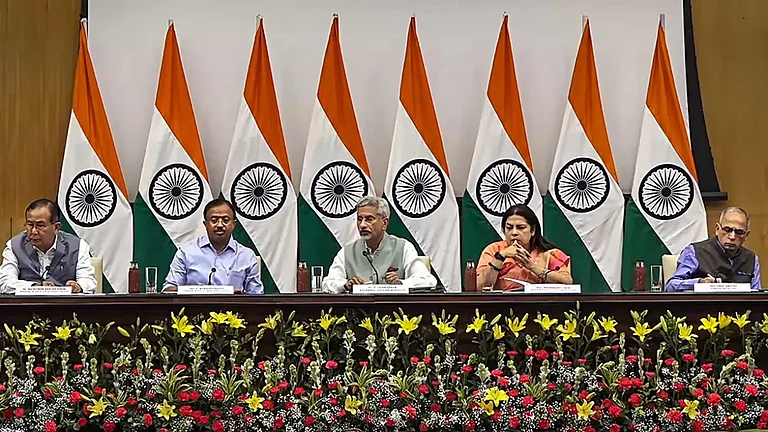Convenience comes with a cost! Online shoppers often compromise with money, information, and privacy in exchange of speed and comfort. Every e-commerce or quick commerce platform lures customers with “dark patterns” in the name of discounts, but they end up with spending more or at “not-so” useful products. A 2023 survey reported that more than 40% of consumers experienced “unplanned” financial consequences due to dark patterns.
Why E-Commerce Feels So Manipulative - The Psychology of Dark Patterns Explained
Online shopping platforms are increasingly using manipulative design tricks known as dark patterns to push consumers into making unwanted or costly purchases. Despite government guidelines and rising awareness, these deceptive tactics—like fake countdowns or hidden charges—continue to thrive across quick commerce, ride-hailing, and e-commerce apps, all in the name of convenience
This deception is not new; it has roots back to the early days of online shopping when Amazon and Flipkart were the only players in e-commerce market. According to a 2019 report by Princeton University, nearly 11% of 11,000 shopping websites used “misleading, aggressive, deceitful and potentially unlawful” tactics.
And surprisingly, the e-commerce sector witnessed a rise in dark patterning, despite repeated detection. Now, let's understand how these deceptive design tactics are spreading across platforms, and why they are so hard to shake off.
What Are Dark Patterns?
Dark patterns refer to user interface and design tactics that compromise on consumer freedom to choose. Basically, these strategies push customers to purchase products that might not fall in their best interest.
The government had earlier recognised 13 dark patterns such as false urgency, basket sneaking, confirm shaming, forced action, subscription trap, interface interference, bait and switch, drip pricing, disguised advertisement, nagging, trick question, SaaS billing, and rogue malwares.
These are not theoretical fancy terms; they show up on our screens almost every day. Take, for instance, the constant pressure to buy fast before stock runs out or sale ends. “Only 1 left! Or Hurry! 15 minutes left for deal”, we see such messages everyday on quick commerce and shopping apps.
Similarly, at the time of big matches like IPL or world cup, food delivery apps show cricket-themed deals like “15 minutes only! Match Mania Offer or Offer ends before the next over!” These countdowns reset after expiry or keep reappearing. Such offers subconsciously pressurise users to order immediately to “not miss out”, even if the deal isn’t truly time-limited.
Are Consumers Aware Of It?
Social media platforms have become hotbeds for consumer grievances on dark patterns in quick commerce and ride-hailing services. Users are now frequently highlighting manipulative tactics such as hidden delivery charges, differential pricing based on device type or location, etc.
Last year, Zepto found itself at the center of such controversy when a Reddit post went viral. A former employee reportedly claimed that Zepto was using dark patterns to charge higher prices from customers for smartphones valued over Rs 30,000.
And the most recent example is of ride-hailing service providers --- Ola, Uber and Rapido. The Central Consumer Protection Authority (CCPA) issued notices to Ola and Uber following allegations that iPhone users were charged higher fares than Android user for identical rides.
Besides this, these platforms have also come under CCPA probe for “advance tips” option for faster services. Consumer Affairs Minister Pralhad Joshi said the practice of advance tip is deeply concerning. "Forcing or nudging users to pay a tip in advance, for faster service, is unethical and exploitative. Such actions fall under unfair trade practices," the minister said.
Can This Be Fixed?
The government is actively working to counteract these manipulative practices. In 2023, the CCPA clarified that such tactics come under the category of “unfair trade practices” as per the Consumer Protection Act, 2019. The regulatory body had even issued “Guidelines for Prevention and Regulation of Dark Patterns, 2023” for the prevention and regulation of dark patterns.
This isn’t the only act to protect consumers’ interest, there are others too. It had also notified the Guidelines for Prevention of Misleading Advertisements and Endorsements for Misleading Advertisements, 2022. These guidelines inter alia provide for conditions for an advertisement to be non-misleading and valid, certain stipulations in respect of bait advertisements and free claim advertisements, and duties of manufacturer, service provider, advertiser and advertising agency.
However, despite concerted efforts by government and authorities to curb deceptive online business practices, the prevalence of dark patterns continues to rise due to continuous emergence of new platforms across sectors. As per LocalCircles data, around 50% of Indian consumers encountered at least one dark pattern during online payments.
Considering the current scenario, Union Minister Pralhad Joshi will chair a high-level stakeholder meeting on May 28 to discuss concerns over dark patterns in major e-commerce platforms.
Major online platforms, including Amazon, Flipkart, Meta, Zomato, Swiggy, Apple, MakeMyTrip, Uber, Paytm and Reliance Retail, alongside representatives from food delivery, pharmacy, travel, cosmetics, apparel and electronics sectors, have been invited to the summit in the national capital.
The meeting will advocate stricter measures against dark patterns and deliberate penalties for regulatory violations.


